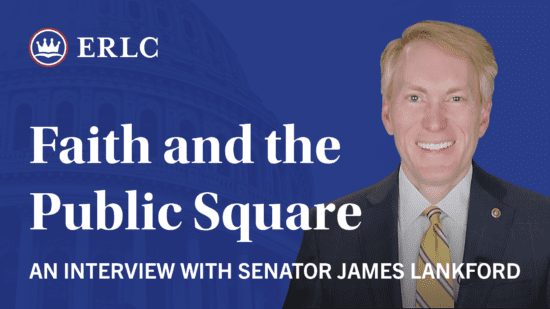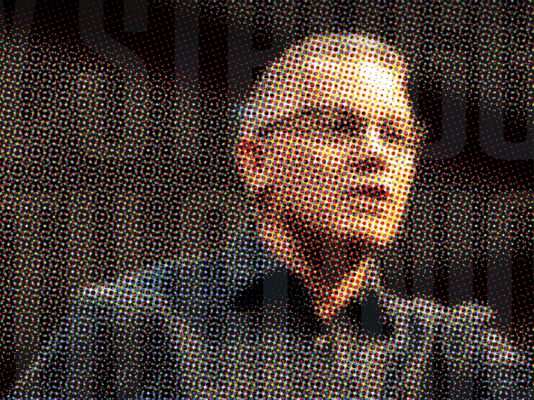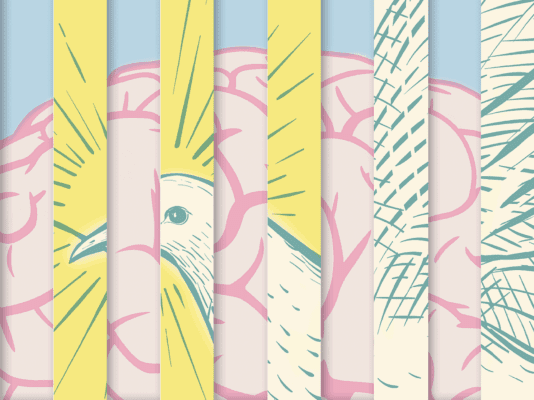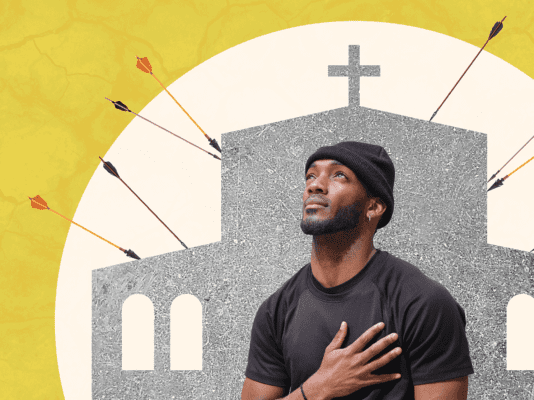Mental health is a prevalent conversation in our society. While there may be various reasons why this is the case, it seems the most poignant and urgent is because so many people are silently hurting. And it’s often difficult for people to articulate and find help for deep struggles of the heart and mind. Below, Lilly Park, a fellow with the ERLC’s Research Institute and a biblical counseling professor at Southwestern Baptist Theology Seminary, shares how she is able to care for those with mental health struggles and explains the difference between biblical counseling and other forms of therapy in diagnosing and treating these issues.
Alex Ward: What is mental health? And what is biblical counseling?
Lilly Park: There are a lot of different terms. I’m going to use the American Psychological Association [definitions]. That brings some standardization. In short, mental health is a general sense of emotional well-being and good behavioral adjustment. When we think of [a] mental disorder, it’s impairing your functioning in life. It could be the level of stress affecting the way you are behaving, thinking, or feeling.
Biblical counseling is addressing what we call mental health issues from a biblical worldview. It’s trying to use Scripture and theology to understand people’s problems and point them to Christ in working through their problems. It’s a redemptive framework in diagnosing or addressing life issues.
There’s always a spectrum within groups, but that would be a description that most people in the biblical counseling movement would agree with. We are not trying to use secular theories or methodologies to understand the nature of people’s problems and, therefore, the solution. We’re trying to search the wisdom of God through Scripture in interpreting people’s problems biblically and helping them work through it.
AW: What are characteristics of biblical counseling and some distinctions between it and a secular therapist’s office?
LP: One distinction is that in biblical counseling, we’re not promising a fix of [people’s] problems. Because [problems are] part of living in a fallen world; we can see them as part of our Christian sanctification.
Another distinction is that biblical counselors are not licensed counselors. Biblical counseling is rooted in Scripture and theology. That’s a foundational difference that informs our anthropology. We believe that we are more than just our bodies or our brains in comprehending people’s struggles. We are created in the image of God.
We believe that we are more than just our bodies or our brains in comprehending people’s struggles. We are created in the image of God.
We will never have perfection or a life without suffering while living in this fallen world. And that helps us come alongside people who are suffering. I love to use Galatians 6:1–2: “Brothers, if anyone is caught in any transgression, you who are spiritual should restore him in a spirit of gentleness. Keep watch on yourself, lest you too be tempted. Bear one another’s burdens, and so fulfill the law of Christ.” None of us are above needing help. As Christians, we are brothers and sisters in Christ. So biblical counseling is very much about helping one another, especially in the local church, pointing them to Christ, and fulfilling the Great Commandments of loving God and loving one another.
We believe Scripture is sufficient for the Christian life. But that doesn’t mean that we are throwing Bible verses at people and saying, “You need to pray more and just repent of your sins and your problems will be fixed.” I think the issue with that is it can become a behavioral approach. We need to help people depend on the Holy Spirit working through their problems. It doesn’t mean that if you have enough Bible verses, your struggles go away. But I do believe you can bear the fruit of the Spirit even when life is hard.
Another contrast from secular counseling is that we’re not meeting with people for the rest of their life. As they are truly changing from their heart, we see them become stronger in not being enslaved to their particular struggles. There’s a time and place to have regular meetings of counseling and accountability, but we don’t think biblical counseling is a lifelong relationship with your counselor.
AW: Mental health conversations are prevalent in American culture right now. Earlier in 2024, even the Sesame Street character Elmo went viral tweeting about anxiety. What does that tell us about where we are as a society when it comes to mental health?
LP: Number one is that, as a society, there are a lot of people wrestling with what we would call mental health issues. People are seeking help wherever they can find an outlet, and social media has become a powerful source of expressing your troubles and thoughts, finding acceptance with people who are saying, “Yeah, me too. You’re not the only one. And it’s okay,” and finding this community of people who are wrestling with similar dark struggles, confusion, or insecurity.
It’s not anonymous, but sometimes it feels safer to put it out there on social media rather than saying it in person. I think it also shows that people are hungry for real community, and it speaks to the isolation that is going on in our society and the correlation with anxiety, depression, cyberbullying, and other problems that we’ve seen. It also affirms studies that are saying there’s a huge crisis right now with adolescents and mental health.
AW: Throughout USA women’s gymnastics this year, there was talk about Simone Biles’ past mental health issues. Because of her struggles, she’s taken on a role as a spokesperson for mental health. What does this say about our culture?
LP: I’m glad that she did well in this Olympics and that she was able to perform great. She’s such a role model for a lot of people, and with that comes influence. When we have role models in our lives, we want to identify with them. So, sometimes what that person is going through, if there are similarities in our lives, we can project it onto ourselves. We can say, “Well, she had these fears and struggles, and I can relate to that, so I must have a disorder as well.” You are your own doctor. My students tell me that their peers are doing this, so it’s more common than we realize. There’s a sense that we need to be careful of diagnosing our struggles based on another person’s experience.
On the other hand, having a public figure like her be honest about her struggles gives people permission to open up. Where previous generations kept things hushed, now there’s less shame to put it out there. If it helps more people have the courage to confide in a friend, their pastor, or a counselor about their struggles, I think that’s a good thing.
So I’m glad that more people are sharing about their problems, but sometimes it’s also become like a badge of honor where it’s a form of seeking attention because another person is sharing, and it’s increased their popularity. Not always; I want to be sensitive to people who struggle. It’s not simple. We should take each person seriously and listen to them.
AW: When I think about my grandparents, they talk about being anxious about basic needs. Now, we’re worried about questions of community and isolation. How should we as a Church respond to the anxieties of our day?
LP: There are books that have addressed the generational differences and how our grandparents had to think about trying to survive in the Great Depression, and that formed men who were stronger. There are studies saying that parents have been overprotective of their children, not preparing adolescents for real-life situations such as conflict, losing a job, or not always being an A-student. In wanting to protect them from being hurt, perhaps emotionally, we are actually not equipping them to face life when plans don’t go their way. That can create chaos of not just disappointment, but an inward focus of blaming yourself. And that’s where we can see anxiety and depression.
We need to help Christians understand how to face failures and trials in life without trying to avoid them, minimize them, or find a coping mechanism for them.
We need to help Christians understand how to face failures and trials in life without trying to avoid them, minimize them, or find a coping mechanism for them. It’s going to be ongoing in our lives. The more I study the Bible, the more comfort I get from it. Ecclesiastes is one of my favorite books because I see life through a less idealistic perspective. I’ve seen and tasted more of the bitterness of this world in my 20s, 30s, and 40s. Ecclesiastes is comforting to help me see that this is not my final home or ultimate purpose. All the work I do and all the dreams I have, there is no guarantee that it’s going to turn out the way I think it will. Hardship is not because God doesn’t love you or because you sinned; sometimes there are no clear answers.
It’s hard to make sense of relationships and sufferings without putting everything in relation to God and who he is. David Powlison, a biblical counselor who died a few years ago, was wise in helping us see that we’re always interpreting life. And the question is: are you interpreting it through the grid of Scripture, or the latest book on fixing your life, your own experiences, or other traditions or theories. That’s why I think biblical counseling can be helpful, because it aims to give not more of a man’s perspective, but God’s perspective. And that’s what we need.
This article is from the Winter 2024 issue of Light magazine, Finding Rest in the Wilderness: Hope and Help for Mental Health Struggles.











